Submitted:
27 July 2024
Posted:
30 July 2024
Read the latest preprint version here
Abstract
Keywords:
1. Introduction
2. Classroom Practice in Environmental Education: The Road to its Hegemonic Narrative
3. How is Environmental Education Approached in Teacher Training?
4. Discussion
4.1. Emphasising the Didactic Dimension of Environmental Education in Teacher Training
4.2. Integration of GreenComp and LifeComp Competences in the “TeachComp” During Teacher Training
4.3. What Skills do International Scientific Frameworks Aim to Foster in Today’s Citizens?
4.4. Practical Examples: Redefining the Didactic Approach of Environmental Education towards Transformative Environmental Education
4.4.1. Example 1 Within the Framework of Primary Education: Activity That Addresses the Problem of Raptors Deficiency in Wetlands and Its Consequences for Human, Animal, and Environmental Health
- Systems thinking: The activity is designed to foster a systemic vision of the presented environmental issue that integrates the One Health approach. It requires students to understand the complex ecological relationships and the role of top predators in maintaining ecosystem balance, highlighting the implications of their absence for human, animal, and environmental health (disease transmission).
- Scientific and epistemic practices: The activity promotes the development of scientific practices such as inquiry, modelling, and argumentation to enhance the understanding of ecological issues. Students engage in these practices by formulating hypotheses, collecting and analysing data, and constructing increasingly sophisticated scientific arguments and models based on available evidence. This process helps students develop a deeper understanding of scientific concepts and the nature of scientific inquiry (how science is constructed).
- Awakening environmental justice: The activity is designed to raise awareness of environmental justice by illustrating how the degradation of wetlands affects organisms, emphasising the importance of preserving ecological balance for the well-being of all species. Environmental degradation, such as climate change, is primarily driven by high-impact actions in hyper-urbanised areas, which ultimately affect more natural rural areas, jeopardising ecosystem balance. Therefore, the inhabitants of these areas suffer the most from the consequences, despite being less responsible for the damage (unequal distribution of the benefits and burdens of environmental harm).
4.4.2. Example 2 Within the Framework of Secondary Education: Activity on Reproductive Problems in Animals and Humans Caused by Environmental Contamination From Pesticides
- Systems thinking: The activity enables students to develop a systemic understanding of the interconnections between environmental pollution and the reproductive health of animals and humans by integrating evidence-based argumentation, the One Health approach, and complexity-based solutions. This approach allows students to analyse the multifaceted nature of environmental challenges and propose well-reasoned solutions to reduce pollution and its effects.
- Scientific and epistemic practices: The activity emphasises the importance of students applying scientific skills such as identifying relevant data, establishing cause-and-effect relationships, and evaluating evidence to support conclusions. Engaging in evidence-based argumentation within the context of One Health education can enhance students’ scientific reasoning and environmental literacy. Additionally, delving into how scientific ideas are constructed, the role of data and evidence in science (argumentation as a process of critical evaluation and evolution towards sophisticated models, using evidence to support scientific explanations, and so on), could implicitly improve their epistemic practices.
- Awakening environmental justice: The activity fosters a sense of global citizenship and environmental responsibility by encouraging students to propose solutions that take into account both planetary and human health.
4.4.3. Example 3 Within the Framework of Teacher Training: Activity on the Sustainability of Avocado Production and Consumption in the World
- Systems thinking: The activity encourages students to analyse the sustainability of avocado consumption from multiple perspectives, including ecological, economic, political, and social aspects. By providing materials that encompass various viewpoints, students are prompted to adopt a holistic view to understand the complexity of the case and make informed decisions about it.
- Scientific and epistemic practices: Through the activity, pre-service teachers must make informed decisions about the sustainability of avocado consumption in countries like Spain (southern regions), considering factors such as resource depletion that may render its continuous production unfeasible. This fosters the development of their scientific reasoning and critical thinking skills, recognising the limitations of the available data for certain claims, the importance of seeking consensus, and the value of considering alternative viewpoints (thus implicitly working on epistemic practices).
- Awakening Environmental Justice: The activity promotes eco-social education by involving students in debates and reflections on environmental justice and sustainability, deepening their understanding of the issues and making them feel engaged in solving environmental problems. The ultimate goal is that the knowledge acquired will lead to changes in everyday behaviour including sustainable use and consumption of resources.
5. Conclusions
6. Future Directions
Author Contributions
Funding
Conflicts of Interest
References
- Cook, R.A.; Karesh, W.B.; Osofsky, S.A. The Manhattan Principles on “One World, One Health” Buildling interdisciplinary bridges to health in a globalized world. Wildlife Conservation Society. New York, USA, (29/11/2004).
- Food and Agriculture Organization of the United Nations (FAO), World Organisation for Animal Health (OIE) y World Health Organization (WHO). Taking a multisectoral one health approach: A tripartite guide to addressing zoonotic diseases in countries. WHO, FAO and OIE: Geneve, Switzerland, 2019, p. 166. Available online: https://www.who.int/publications/i/item/9789241514934 (Accessed on 25 July 2024).
- Amuasi, J.H.; Lucas, T.; Horton, R.; Winkler, A.S. Reconnecting for our future: The Lancet One Health Commission. Lancet 2020, 395, 1469–1471. [Google Scholar] [CrossRef] [PubMed]
- AVMA (American Veterinary Medical Association). One Health: A new professional imperative. AVMA: Washington, DC, USA, 2008, p. 76. Available online: https://www.avma.org/sites/default/files/resources/onehealth_final.pdf (Accessed on 25 July 2024).
- Barrett, M.A.; Bouley, T.A.; Stoertz, A.H.; Stoertz, R.W. Integrating a One Health approach in education to address global health and sustainability challenges. Front. Ecol. Environ. 2011, 9, 239–245. [Google Scholar] [CrossRef]
- Conrad, P.A.; Mazet, J.A.; Clifford, D.; Scott, C.; Wilkes, M. Evolution of a transdisciplinary “One Medicine–One Health” approach to global health education at the University of California, Davis. Prev. Vet. Med. 2009, 92, 268–274. [Google Scholar] [CrossRef]
- Haxton, E.; Lindberg, A.; Troell, K.; Redican, K.J. One Health education meets science. Infect. Ecol. Epidemiol. 2015, 5, 30264. [Google Scholar] [CrossRef] [PubMed]
- Kahn, L.H.; Kaplan, B.; Monath, T.P.; Steele, J.H. Teaching “One Medicine, One Health”. Am. J. Med. 2008, 121, 169–170. [Google Scholar] [CrossRef] [PubMed]
- Karesh, W. (2020). Championing “One Health”. Bull. World Health Organ. 2020, 98, 652–653. [Google Scholar] [CrossRef]
- Shamas, N.; Baffoe-Bonnie, H. Antimicrobial Resistance: Research and Action Towards the One Health Approach. J. Infect. Public Health 2023, 16, 1. [Google Scholar] [CrossRef]
- The Lancet (Editorial). Zoonoses: Beyond the human-animal-environment interface. Lancet 2020, 396, 1. [Google Scholar] [CrossRef] [PubMed]
- Vallés, C.; Rodríguez-Losada, N.; Pérez-Martín, J.M.; Abril, A.M. Where does this coronavirus come from? [¿De dónde proviene este coronavirus?] In Science education in times of Covid-19. From didactic research to the classroom [Enseñanza de las ciencias en tiempos de Covid-19. De la investigación didáctica al aula]; Abril, A.M., Blanco, A., Franco, A.J., Eds.; Graó: Barcelona, Spain, 2021; pp. 63–74. [Google Scholar]
- Lee, J.M.; Wasserman, R.J.; Gan, J.Y.; Wilson, R.F.; Rahman, S.; Yek, S.H. Human Activities Attract Harmful Mosquitoes in a Tropical Urban Landscape. EcoHealth 2020, 17, 52–63. [Google Scholar] [CrossRef] [PubMed]
- Schmeller, D.S.; Courchamp, F.; Killeen, G. Biodiversity loss, emerging pathogens, and human health risks. Biodivers. Conserv. 2020, 29, 3095–3102. [Google Scholar] [CrossRef] [PubMed]
- Ezhova, E.; Orlov, D.; Suhonen, E.; Kaverin, D.; Mahura, A.; Gennadinik, V.; Kukkonen, I.; Drozdov, D.; Lappalainen, H.K.; Melnikov, V.; Petäjä, T.; Kerminen, V.-M.; Zilitinkevich, S.; Malkhazova, S.M.; Christensen, T.R.; Kulmala, M. Climatic Factors Influencing the Anthrax Outbreak of 2016 in Siberia, Russia. EcoHealth 2021, 18, 217–228. [Google Scholar] [CrossRef] [PubMed]
- Alempic, J.-M.; Lartigue, A.; Goncharov, A.E.; Grosse, G.; Strauss, J.; Tikhonov, A.N.; Fedorov, A.N.; Poirot, O.; Legendre, M.; Santini, S.; et al. An Update on Eukaryotic Viruses Revived from Ancient Permafrost. Viruses 2023, 15, 564. [Google Scholar] [CrossRef] [PubMed]
- Guevara-Herrero, I.; Esquivel-Martín, T.; Fernández-Huetos, N.; Pérez-Martín, J.M. . Towards Transformative Environmental Education: Effective Activities for Primary Education. In Interdisciplinary Approach to Fostering Change in Schools. A.M. Güneş, E. Yünkül, Eds.; IGI-Global: Hershey, USA, 2024. (in press) [Google Scholar]
- McAlister, M.M.; Zhang, Q.; Annis, J.; Schweitzer, R.W.; Guidotti, S.; Mihelcic, J.R. Systems thinking for effective interventions in global environmental health. Environ. Sci. Technol. 2022, 56, 732–738. [Google Scholar] [CrossRef] [PubMed]
- Jay, A.K.; Crimmins, A.R.; Avery, C.W.; Dahl, T.A.; Dodder, R.S.; Hamlington, B.D.; Lustig, A.; Marvel, K.; Méndez-Lazaro, P.A.; Osler, M.S.; Terando, A.; Weeks, E.S.; Zycherman, A. Overview: Understanding risks, impacts, and responses. In Fifth National Climate Assessment. Crimmins, A.R., Avery, C.W., Easterling, D.R., Kunkel, K.E., Stewart, B.C., Maycock, T.K., Eds.; U.S. Global Change Research Program: Washington, DC, USA, 2023; p. 47. [Google Scholar] [CrossRef]
- Watts, N.; Adger, W.N.; Agnolucci, P.; Blackstock, J.; Byass, P.; Cai, W.; Chaytor, S.; Colbourn, T.; Collins, M.; Cooper, A.; Cox, P.M.; Depledge, J.; Drummond, P.; Ekins, P.; Galaz, V.; Grace, D.; Graham, H.; Grubb, M.; Haines, A.; Hamilton, I.; Hunter, A.; Jiang, X.; Li, M.; Kelman, I.; Lott, M.; Lowe, R.; Luo, Y.; Mace, G.; Maslin, M.; Nilsson, M.; Oreszczyn, T.; Pye, S.; Quinn, T.; Svendsdotter, M.; Venevsky, S.; Warner, K.; Xu, B.; Yand, J.; Yin, Y.; Yu, C.; Zhang, Q.; Gong, P.; Montgomery, H.; Costello, A. Health and climate change: Policy responses to protect public health. Lancet 2015, 386, 1861–1914. [Google Scholar] [CrossRef] [PubMed]
- IPCC. Summary for Policymakers. In: Climate Change 2023: Synthesis Report. Contribution of Working Groups I, II and III to the Sixth Assessment Report of the Intergovernmental Panel on Climate Change [Core Writing Team, Lee, H., Romero, J. (eds.)]. IPCC: Geneva, Switzerland, 2023; pp. 1–34. [CrossRef]
- Malvar, J.L.; Santos, J.L.; Martín, J.; Aparicio, I.; Alonso, E. Occurrence of the main metabolites of the most recurrent pharmaceuticals and personal care products in Mediterranean soils. J. Environ. Manage. 2021, 278, 111584. [Google Scholar] [CrossRef]
- Neto, B.M.S.; Combi, T.; Taniguchi, S.; Albergaria-Barbosa, A.C.; Ramos, R.B.; Figueira, R.C.L.; Montone, R.C. Persistent organic pollutants (POPs) and personal care products (PCPs) in the surface sediments of a large tropical bay (Todos os Santos Bay, Brazil). Mar. Pollut. Bull. 2020, 161, 111818. [Google Scholar] [CrossRef] [PubMed]
- Olowoyo, J.O.; Mugivhisa, L.L. Evidence of uptake of different pollutants in plants harvested from soil treated and fertilized with organic materials as source of soil nutrients from developing countries. Chem. Biol. Technol. Agric. 2019, 6, 28. [Google Scholar] [CrossRef]
- Chaturvedi, P.; Shukla, P.; Giri, B.S.; Chowdhary, P.; Chandra, R.; Gupta, P.; Pandey, A. Prevalence and hazardous impact of pharmaceutical and personal care products and antibiotics in environment: A review on emerging contaminants. Environ. Res. 2021, 194, 110664. [Google Scholar] [CrossRef] [PubMed]
- Ebele, A.J.; Oluseyi, T.; Drage, D.S.; Harrad, S.; Abdallah, M.A.E. Occurrence, seasonal variation and human exposure to pharmaceuticals and personal care products in surface water, groundwater and drinking water in Lagos State, Nigeria. Emerg. Contam. 2020, 6, 124–132. [Google Scholar] [CrossRef]
- Sanusi, I.O.; Olutona, G.O.; Wawata, I.G.; Onohuean, H. Occurrence, environmental impact and fate of pharmaceuticals in groundwater and surface water: A critical review. Environ. Sci. Pollut. Res. 2023, 30, 90595–90614. [Google Scholar] [CrossRef] [PubMed]
- Xu, M.; Huang, H.; Li, N.; Li, F.; Wang, D.; Luo, Q. Occurrence and ecological risk of pharmaceuticals and personal care products (PPCPs) and pesticides in typical surface watersheds, China. Ecotoxicol. Environ. Saf. 2019, 175, 289–298. [Google Scholar] [CrossRef] [PubMed]
- Duarte, B.; Gameiro, C.; Matos, A.R.; Figueiredo, A.; Silva, M.S.; Cordeiro, C.; Caçador, I.; Reis-Santos, P.; Fonseca, V.; Cabrita, M.T. First screening of biocides, persistent organic pollutants, pharmaceutical and personal care products in Antarctic phytoplankton from Deception Island by FT-ICR-MS. Chemosphere 2021, 274, 129860. [Google Scholar] [CrossRef] [PubMed]
- Fu, Q.; Meyer, C.; Patrick, M.; Kosfeld, V.; Rüdel, H.; Koschorreck, J.; Hollender, J. Comprehensive screening of polar emerging organic contaminants including PFASs and evaluation of the trophic transfer behavior in a freshwater food web. Water Res. 2022, 218, 118514. [Google Scholar] [CrossRef] [PubMed]
- Zhang, H.; Kelly, B C. Sorption and bioaccumulation behavior of multi-class hydrophobic organic contaminants in a tropical marine food web. Chemosphere 2018, 199, 44–53. [Google Scholar] [CrossRef] [PubMed]
- Brack, W.; Barceló Culleres, D.; Boxall, A.B.A.; Budzinski, H.; Castiglioni, S.; Covaci, A.; Dulio,V.; Escher, B.I.; Fantke, P.; Kandie, F.; Fatta-Kassinos, D.; Hernández, F.J.; Hilscherová, K.; Hollender, J.; Hollert, H.; Jahnke, A.; Kasprzyk-Hordern, B.; Khan, S.J.; Kortenkamp, A.; Kümmerer, K.; Lalonde, B.; Lamoree, M.H.; Levi, Y.; Lara-Martín, P.A.; Montagner, C.C.; Mougin, C.; Msagati, T.; Oehlmann, J.; Posthuma, L.; Reid, M.; Reinhard, M.; Richardson, S.D.; Rostkowski, P.; Schymanski, E.; Schneider, F.; Slobodnik, J.; Shibata, Y.; Snyder, S.A.; Fabriz-Sodré, F.; Teodorovic, I.; Thomas, K.V.; Umbuzeiro, G.A.; Viet, P.H.; Yew-Hoong, K.-G.; Zhang, X.; Zuccato, E. One planet: One health. A call to support the initiative on a global science–policy body on chemicals and waste. Environ. Sci. Eur. 2022; 34, 21. [CrossRef] [PubMed]
- Urban, M.C. Accelerating extinction risk from climate change. Science 2015, 348, 571–573. [Google Scholar] [CrossRef]
- Directorate General for Communication from European Parliament. Biodiversity loss: What is causing it and why is it a concern? European Parliament: Brussels, Belgium, 2020. Available online: https://www.europarl.europa.eu/pdfs/news/expert/2020/1/story/20200109STO69929/20200109STO69929_en.pdf (Accessed on 25 July 2024).
- OECD. PISA 2025 Science Framework (draft). Paris, France, 2023, p. 93. Available online: https://pisa-framework.oecd.org/science2025/assets/docs/PISA_2025_Science_Framework.pdf (Accessed on 25 July 2024).
- Walker, C. Tomorrow’s leaders and today’s agents of change? Children, sustainability education and environmental governance. Child. Soc. 2017, 31, 72–83. [Google Scholar] [CrossRef]
- Hurtado-Hurtado, J.; Hämäläinen, V.; Ruuska, T.; Heikkurinen, P. Care as pluriversal strategy? Caring in counter-hegemonic struggles in the degrowth and environmental justice movements. Globalizations 2024, 1–21. [Google Scholar] [CrossRef]
- United Nations Organization. Transforming Our World: The 2030 Agenda for Sustainable Development; UN: New York, USA, 2015; Available online: https://unctad.org/system/files/official-document/ares70d1_es.pdf (Accessed on 25 July 2024).
- UNESCO. Education for Sustainable Development Goals; UNESCO: Paris, France, 2017; Available online: https://unesdoc.unesco.org/ark:/48223/pf0000247444 (Accessed on 25 July 2024).
- Agyerman, J. Environmental justice and sustainability. In Handbook of sustainable development, Atkinson, Dietz G.S., Neumayer, E., Eds.; Edward Elgar: Cheltenham, United Kingdom, 2007; pp. 171–188. [Google Scholar] [CrossRef]
- Grass, R. Environmental education and environmental justice: A three circles perspective. Pathways to Outdoor Communication 1995, 5, 9–13. [Google Scholar]
- Stapp, W.B. The concept of environmental education. Environmental Education 1969, 1, 30–31. [Google Scholar] [CrossRef]
- United Nations Organization. Guidelines and principles of environmental law. Stockholm Declaration. UN: Stockholm, Sweden, 1972:. Available online: https://wedocs.unep.org/bitstream/handle/20.500.11822/29567/ELGP1StockD_SP.pdf?sequence=5&isAllowed=y (Accessed on 25 July 2024).
- UNESCO. Belgrade Charter: A general framework for environmental education. International Seminar on Environmental Education; UNESCO: Belgrade, 1975; Available online: https://unesdoc.unesco.org/ark:/48223/pf0000027608_spa (Accessed on 25 July 2024).
- UNESCO. Tbilisi: United Nations Educational, Scientific and Cultural Organization with UNEP. Intergovernmental Conference on Environmental Education organized by UNESCO in co-operation with UNEP; UNESCO: Tbilisi, 1978; Available online: https://unesdoc.unesco.org/ark:/48223/pf0000032763_spa (Accessed on 25 July 2024).
- United Nations Organization. Our Common Future. United Nations General Assembly; UN: Moscow, 1987; Available online: https://sustainabledevelopment.un.org/content/documents/5987our-common-future.pdf (Accessed on 25 July 2024).
- Ripple, W.J.; Wolf, C.; Newsome, T.M.; Barnard, P.; Moomaw, W.R. “World Scientists’ Warning of a Climate Emergency. ” BioScience 2020, 70, 100–112. [Google Scholar] [CrossRef]
- Ripple, W.J.; Wolf, C.; Newsome, T. M.; Galetti, M.; Alamgir, M.; Crist, E.; Mahmoud, M.I.; Laurance, W.F. ; and 15,364 Scientist Signatories from 184 Countries. “World Scientists’ Warning to Humanity: A Second Notice.” BioScience 2017, 67, 1026–1028. [Google Scholar] [CrossRef]
- Lewandowsky, S. Liberty and the pursuit of science denial. Curr. Opin. Behav. Sci. 2021, 42, 65–69. [Google Scholar] [CrossRef]
- Svalfors, U. Education for sustainable development and multidimensional implementation. A study of implementations of sustainable development in education with the curriculum of upper secondary school in Sweden as an example. Discourse and Communication for Sustainable Education 2017, 8, 114–126. [Google Scholar] [CrossRef]
- Reid, A.; Dillon, J.; Ardoin, N.; Ferreira, J.A. Scientists’ warnings and the need to reimagine, recreate, and restore environmental education. Environ. Educ. Res. 2021, 27, 783–795. [Google Scholar] [CrossRef]
- Guevara-Herrero, I.; Pérez-Martín, J. M.; Bravo-Torija, B. Impact of the Sustainable Development Goals on educational research on Environmental Education. Rev. Eureka Ensen. Divulg. Cienc. 2023, 20. [Google Scholar] [CrossRef]
- Martínez-Pena, I.; Uskola, A.; and Puig, B. (2024). What is the trainee teacher’s notion of Antibiotic Resistance from the ‘One Health’ approach? Rev. Eureka Ensen. Divulg. Cienc. 2024, 21. [Google Scholar] [CrossRef]
- Carrasquer-Álvarez, B.; Ponz-Miranda, A.; Gavidia-Catalán, V. Environmental health competencies in textbooks. Rev. Eureka Ensen. Divulg. Cienc. 2023, 20. [Google Scholar] [CrossRef]
- Ogunseitan, O.A. One Health and the Environment: From Conceptual Framework to Implementation Science. Environment 2022, 64, 11–21. [Google Scholar] [CrossRef]
- Essack, S.Y. Environment: The neglected component of the One Health triad. Lancet Planet. Health 2018, 2, e238–e239. [Google Scholar] [CrossRef] [PubMed]
- Harrison, S.; Kivuti-Bitok, L.; Macmillan, A.; Priest, P. EcoHealth and One Health: A theory-focused review in response to calls for convergence. Environ. Int. 2019, 132, 105058. [Google Scholar] [CrossRef] [PubMed]
- Guevara-Herrero, I.; Bravo-Torija, B.; Pérez-Martín, J.M. Educational Practice in Education for Environmental Justice: A Systematic Review of the Literature. Sustainability 2024, 16, 2805. [Google Scholar] [CrossRef]
- Klein, J.; Rauchwerk, S. Ecological literacy: Meanings and approaches. In Across the spectrum: Resources for environmental educators, 3rd ed.; Monroe, M.C., Krasny, M.E., Eds.; North American Association for Environmental Education: Florida, USA, 2016; pp. 65–84. [Google Scholar]
- Roldán-Arcos, S.; Pérez-Martín, J.M.; Esquivel-Martín, T. Education for Environmental Justice: What Proposals are Being Made? Revista Internacional de Educación para la Justicia Social 2022, 11, 11–27. [Google Scholar] [CrossRef]
- Bamberg, S.; Rees, J.; Seebauer, S. Collective climate action: Determinants of participation intention in community-based pro-environmental initiatives. J. Environ. Psychol. 2015, 43, 155–165. [Google Scholar] [CrossRef]
- Wals, A.E.; Brody, M.; Dillon, J.; Stevenson, R.B. Convergence between science and environmental education. Science 2014, 344, 583–584. [Google Scholar] [CrossRef]
- Esquivel-Martín, T.; Pérez-Martín, J.M.; Bravo-Torija, B. Does Pollution Only Affect Human Health? A Scenario for Argumentation in the Framework of One Health Education. Sustainability 2023, 15, 6984. [Google Scholar] [CrossRef]
- Bengtsson, S.L. Hegemony and the politics of policy making for education for sustainable development: A case study of Vietnam. J. Environ. Educ. 2016, 47, 77–90. [Google Scholar] [CrossRef]
- Rabinowitz, P.M.; Natterson-Horowitz, B.J.; Kahn, L.H.; Kock, R.; Pappaioanou, M. Incorporating one health into medical education. BMC Med. Educ. 2017, 17, 1–7. [Google Scholar] [CrossRef] [PubMed]
- Guevara-Herrero, I. Is Consuming Avocados Equally Sustainable Worldwide? An Activity to Promote Eco-Social Education from Science Education. Educ. Sci. 2024, 14, 560. [Google Scholar] [CrossRef]
- Pérez-Martín, J. M.; Esquivel-Martín, T. The challenge of sizing environmental competence for teachers through their perceptions during initial training [El reto de dimensionar la competencia ambiental para maestros/as a través de sus percepciones durante la formación inicial]. In General competences in initial teacher education: Experiences and guidelines for their development [Las competencias generales en la formación inicial docente: Experiencias y orientaciones para su desarrollo]; Cañadas, L., Rappoport, S., Eds.; Dykinson, Madrid, Spain, 2022; pp. 36–47.
- Zhou, G. Environmental Pedagogical Content Knowledge: A Conceptual Framework for Teacher Knowledge and Development. In Educating Science Teachers for Sustainability; Stratton, S., Hagevik, R., Feldman, A., Bloom, M., Eds.; ASTE Series in Science Education. Springer; Cham.: Switzerland, 2015; pp. 185–204. [Google Scholar] [CrossRef]
- Álvarez-García, O.; Sureda-Negre, J.; Comas-Forgas, R. (2018). Evaluation of pre-service teachers’ environmental competences: Case study. Enseñanza Cienc. 2018, 36, 117–141. [Google Scholar] [CrossRef]
- Mora-Penagos, W.M.; Guerrero-Guevara, N. (2022). Key environmental competences in the teaching activities of science teachers. [Las competencias ambientales clave en las actividades docentes del profesorado de Ciencias]. Tecné, Episteme y Didaxis 2022, 51, 299–316. [Google Scholar] [CrossRef]
- Ministry of Education and Vocational Training (Spain). Organic Law 3/2020, of 29 December, which amends Organic Law 2/2006, of 3 May, on Education. Off. State Gaz. 2020, 340, 122868–122953. [Google Scholar]
- Ministry of Education and Science (Spain). Ministerial Order regulating the Early Childhood Education Teaching Profession. ECI/3854/2007. Off. State Gaz. 2007, 312, 53735–53738. [Google Scholar]
- Ministry of Education and Science (Spain). Ministerial Order regulating the Primary Education Teaching Profession. ECI/3857/2007. Off. State Gaz. 2007, 312, 53747–53750. [Google Scholar]
- Puig, B.; Uskola, A. Understanding Pandemics Such as COVID-19 through the Lenses of the “One Health” Approach. Sustainability 2021, 13, 13389. [Google Scholar] [CrossRef]
- Ardoin, N.M.; Bowers, A.W. Early childhood environmental education: A systematic review of the research literature. Educ. Res. Rev. 2020, 31, 100353. [Google Scholar] [CrossRef] [PubMed]
- Bianchi, G.; Pisiotis, U; Cabrera-Giraldez, M. GreenComp The European sustainability competence framework, Punie, Y., Bacigalupo, M., eds.; EUR 30955 EN, Publications Office of the European Union, Luxembourg, 2022. [CrossRef]
- Davis, J. Revealing the research ‘hole’ of early childhood education for sustainability: A preliminary survey of the literature. Environ. Educ. Res. 2009, 15, 227–241. [Google Scholar] [CrossRef]
- Olsson, D.; Gericke, N. The adolescent dip in students’ sustainability consciousness. J. Environ. Educ. 2016, 47, 35–51. [Google Scholar] [CrossRef]
- Villanueva-Cabezas, J.P.; Winkel, K.D.; Campbell, P.T.; Wiethoelter, A.; Pfeiffer, C. One Health education should be early, inclusive, and holistic. Lancet Planet. Health 2022, 6, e188–e189. [Google Scholar] [CrossRef] [PubMed]
- Valladares, L. Scientific literacy and social transformation. Sci. Educ. 2021, 30, 557–587. [Google Scholar] [CrossRef] [PubMed]
- Sala, A.; Punie, Y.; Garkov, V.; Cabrera-Giraldez, M. LifeComp: The European Framework for Personal, Social and Learning to Learn Key Competence, EUR 30246 EN, Publications Office of the European Union, Luxembourg, 2020. [CrossRef]
- Favier, T.; Van Gorp, B.; Cyvin, J.B.; Cyvin, J. Learning to teach climate change: Students in teacher training and their progression in pedagogical content knowledge. J. Geogr. Higher Educ. 2021, 45, 594–620. [Google Scholar] [CrossRef]
- Werner da Rosa, C.; Otero, J. Influence of source credibility on students’ noticing and assessing comprehension obstacles in science texts. Int. J. Sci. Educ. 2018, 40, 1653–1668. [Google Scholar] [CrossRef]
- Howell, E.L.; Brossard, D. (Mis)informed about what? What it means to be a science-literate citizen in a digital world. Proc. Natl. Acad. Sci. USA 2021, 118, e1912436117. [Google Scholar] [CrossRef] [PubMed]
- Lederman, N.G.; Lederman, J.S. I read it on the Internet, it has to be true! J. Sci. Teach. Educ. 2016, 27, 795–798. [Google Scholar] [CrossRef]
- Coffey, Y.; Bhullar, N.; Durkin, J.; Islam, M.S.; and Usher, K. Understanding eco-anxiety. J. Climat. Change Health 2021, 3, 100047. [Google Scholar] [CrossRef]
- Ardoin, N.M. Toward an interdisciplinary understanding of place: Lessons for environmental education. Can. J. Environ. Educ. 2006, 11, 112–126. [Google Scholar]
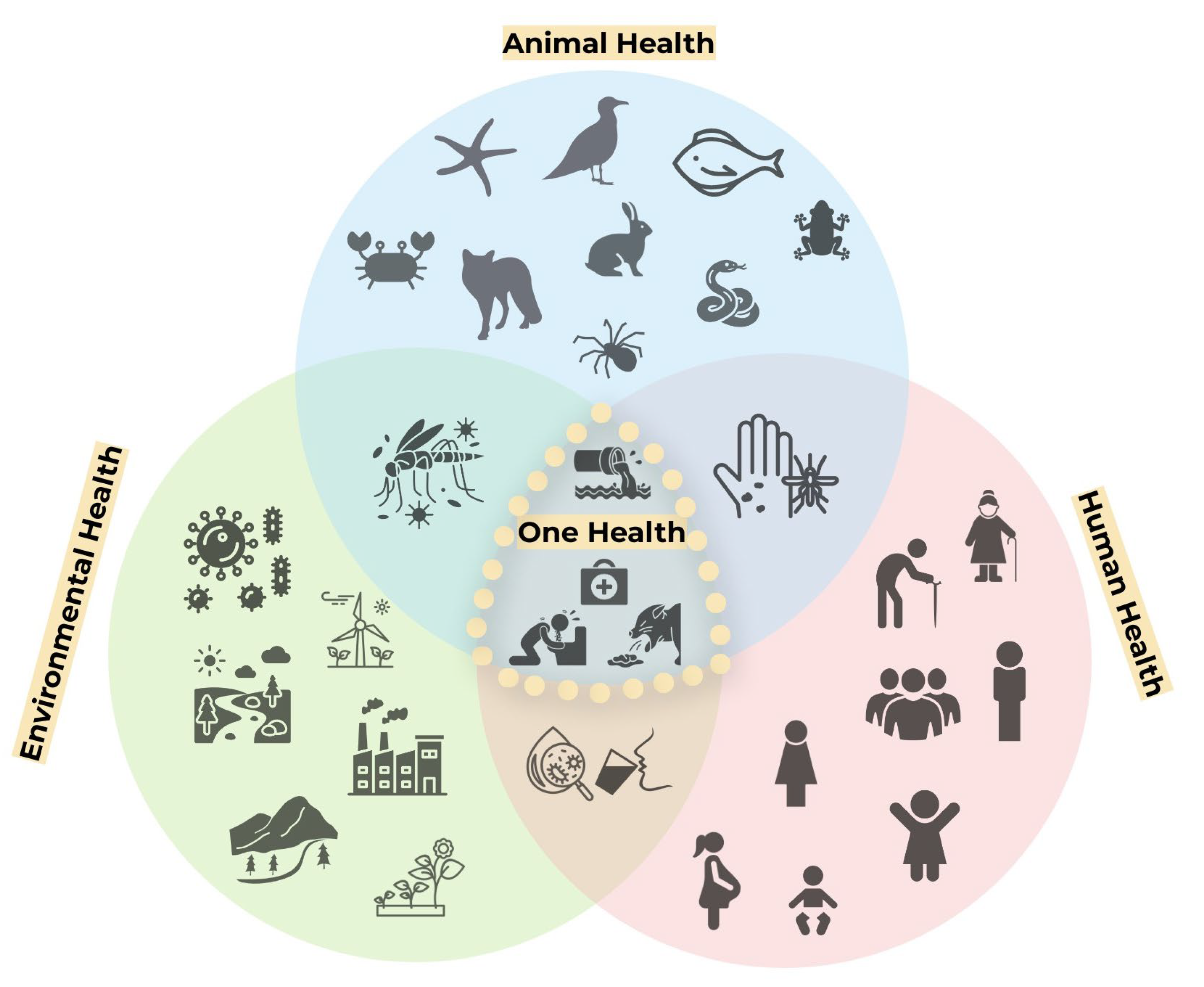
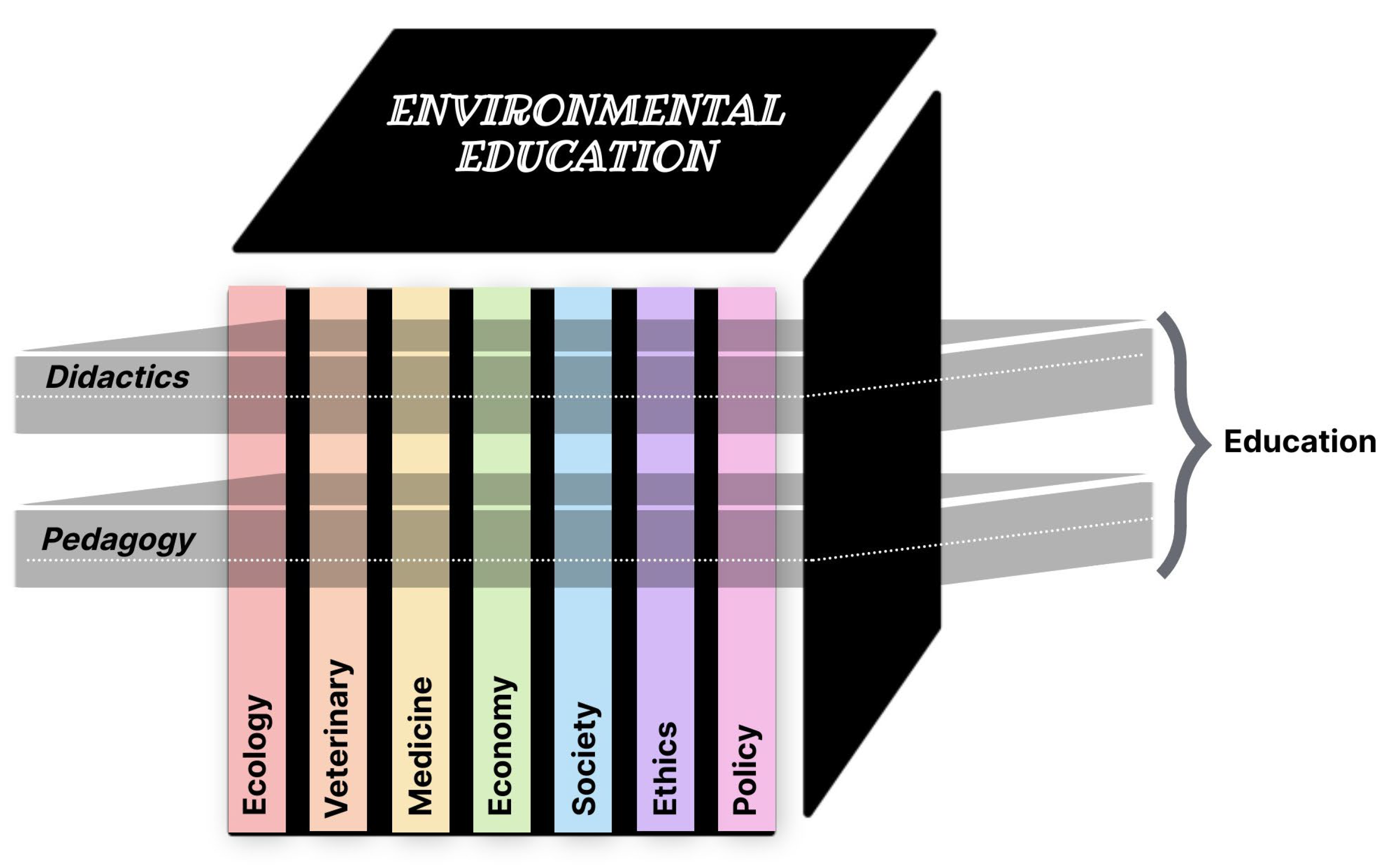
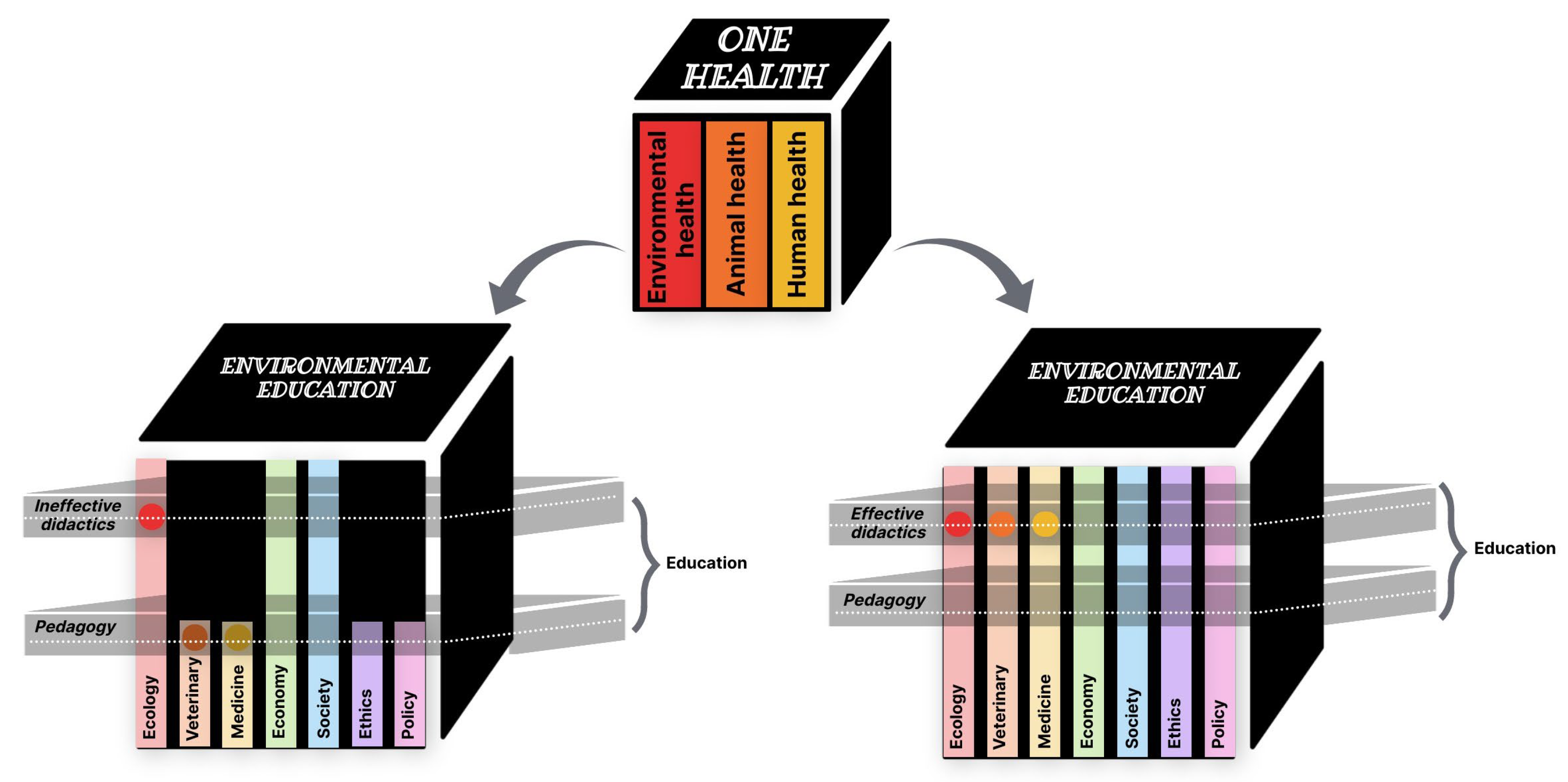
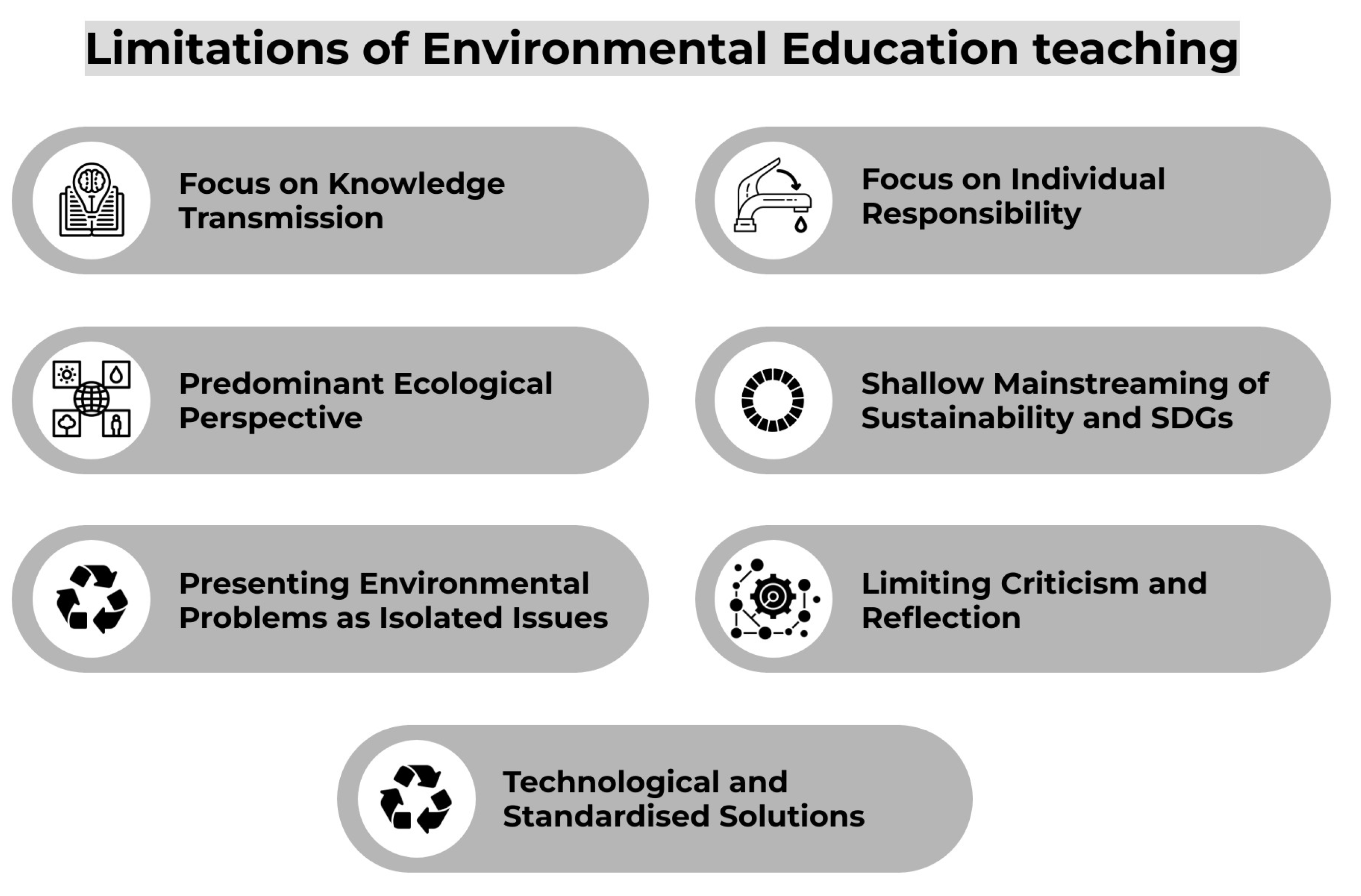
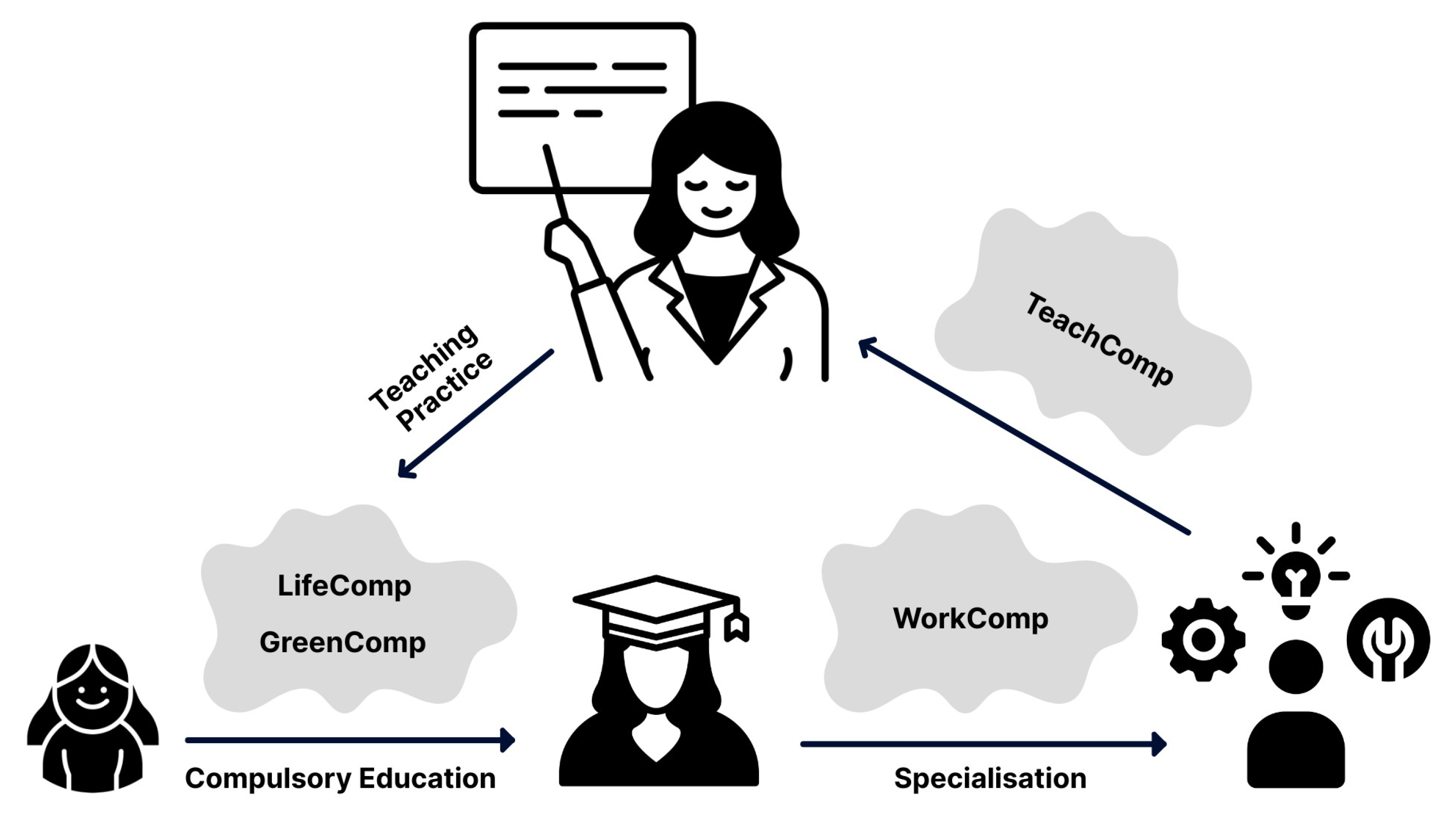
Disclaimer/Publisher’s Note: The statements, opinions and data contained in all publications are solely those of the individual author(s) and contributor(s) and not of MDPI and/or the editor(s). MDPI and/or the editor(s) disclaim responsibility for any injury to people or property resulting from any ideas, methods, instructions or products referred to in the content. |
© 2024 by the authors. Licensee MDPI, Basel, Switzerland. This article is an open access article distributed under the terms and conditions of the Creative Commons Attribution (CC BY) license (http://creativecommons.org/licenses/by/4.0/).




